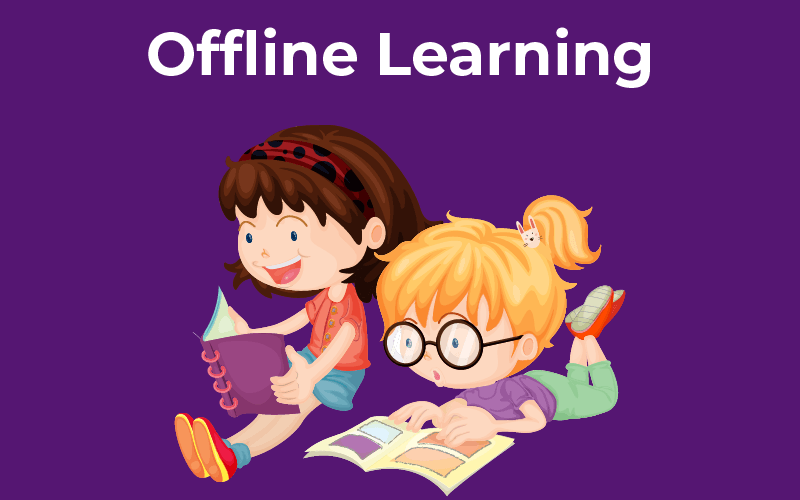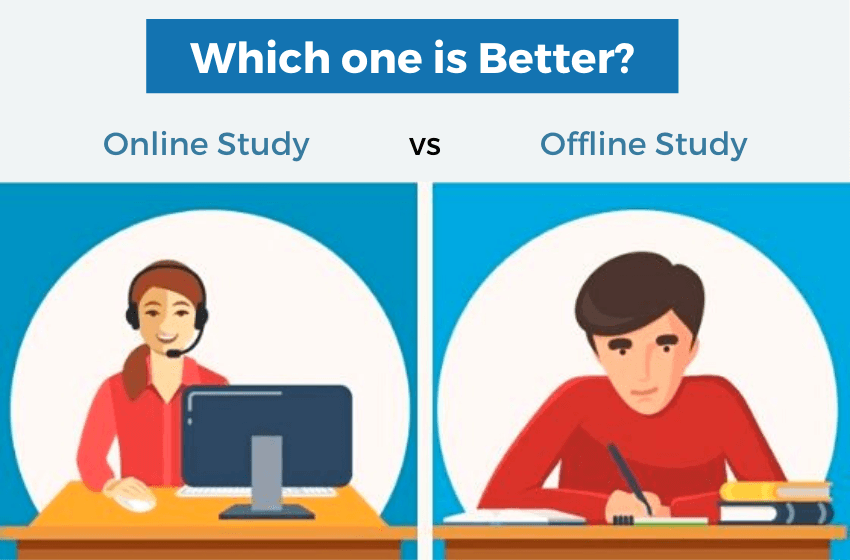Traditional teaching techniques are evolving due to technological advances.
Online education has gained prominence in India, with virtual learning becoming a preferred alternative to in-person classrooms. The application of information and communications technology in education is remarkable, from augmented reality (AR) and virtual reality (VR) to cloud-based learning platforms.
While India’s online education market stood at a valuation of INR 91.41 billion in 2020, the figure is with the market expected to reach INR 325.48 billion by 2026. This growth is due to online education's flexibility, convenience, and cost-effectiveness.
Online education has become popular for those who want to study from home. The industry will expand as more students seek the benefits of online learning.
In this blog, we will discuss eight reasons why online learning is a more favorable option than offline education for those seeking to improve their education and career prospects.
Start your learning journey with advice from our counselor
Request a call →![]()
What is Online Education?
Online education is a mode of learning that takes place over online platforms. It allows students to access academic content and courses with an internet connection and a smartphone or computer.
Online education comes in many forms, including massive open online courses (MOOCs), certificate programs, bachelor's and master's degrees, diplomas, and other training courses.
Students have 24/7 access to academic resources through online learning platforms. These resources include reading materials, interactive exercises, and video lectures.
Online education enables students to engage with their lecturers and fellow students through virtual platforms and other communication tools.

What is Offline Education?
Offline education is traditional learning provided in a physical space, like a lecture hall or classroom.
It involves face-to-face interaction between students and instructors at a defined time and place. Offline education can take many forms, including schools, colleges, and universities.
Students attend classes and take part in academic activities in person. They receive instruction from instructors and engage in discussions and other interactive activities.
Offline education is often considered the traditional method of delivering instruction. Its value for the ability to provide students with a structured, hands-on learning experience makes it a popular choice even today.
But, the growth of online learning has given students more ways to access education. Today, many students pursue on-campus and online degrees to fulfil their professional needs and objectives.
Also Read: Bachelor’s in Psychology

8 Reasons Why Online Education is Better Than Offline
Whether you are looking to learn new skills or advance in your career, online education provides the perfect chance to do so without compromising on other commitments.
It offers several advantages over traditional offline education. Here are eight reasons why online education is often a better option:
1. Flexibility
Online education provides better scheduling and location flexibility than traditional classroom instruction.
Students can access online courses and participate in virtual classes whenever and wherever they have an internet connection.
2. Convenience
Removing the need for commuting is one of biggest benefits of online education. This can mean significant time and financial savings for students, especially those far from regular brick-and-mortar institutions.
Online education enables students to study from home or anywhere without worrying about getting to and from a physical campus.
3. Personalization
Online education, as opposed to traditional educational approaches, allows students to set their own pace and customize their learning environment to meet their needs and preferences.
Students may enjoy a more individualized and efficient learning experience due to this level of customization.
Online learning environments offer a variety of resources that students can access at any time. Some resources include video lectures, reading materials, and interactive exercises.
It enables students to review the material at their own pace and schedule instead of keeping up with the class’s pace.
It can benefit students who need more time to understand a concept by allowing them to go over the material as often as necessary.
Also Read: Online BCA Is More Beneficial Than Offline BCA Program?
4. Wide Range of Courses
One of the biggest benefits of online education is the variety and range of the courses offered.
Online education platforms provide various classes covering a wide range of subjects, from traditional academic disciplines to more specialized and niche areas of study.
This makes it simpler for students to locate courses that align with their interests and professional objectives.
Even if traditional brick-and-mortar schools do not offer those courses, students can still explore new subjects thanks to the flexibility and convenience of online education.
Students may benefit from this by widening their horizons, developing new skills, and finding new passions and interests.
5. Interactive Learning
Interactive elements in online courses, such as quizzes, webinars and virtual discussions, improve the learning experience.
As a result, education becomes more enjoyable and efficient. Interactions make instructors and students feel more connected to one another.
Quizzes and discussions encourage interaction, foster critical thinking, and help students assess their knowledge.
Interactive elements like these also keep students engaged and improve their sense of complex concepts.
6. Access to Industry Experts
One of the main benefits of online education platforms is that they give students access to top experts from various industries, enabling them to learn from the best in the business.
These experts add real-world insights to the classes, helping students understand the applications of the ideas and concepts they learn in real-world situations.
Also, online education platforms offer networking opportunities to students to get in touch with like-minded people.
This helps those looking to advance their careers as it enables them to network with industry leaders and develop connections for future opportunities and career development.
7. Cost-Effective
Online education is more affordable than conventional in-person learning. Budgeting allows students to pay in instalments or per class.
Students who study online can also save money on transportation costs and relocation expenses. Study materials are available in digital format or through learning management systems, eliminating the need to buy textbooks.
Furthermore, many online education platforms offer attractive scholarships that lower expenses and improve outcomes.
8. Technical Skill Development
Enrolling in online courses allows students to develop their technical skills, which are sought after in the job market today.
Online classes make students proficient in using industry-relevant tools and technologies.
These skills are valuable for online courses and applicable in various professions, from marketing and advertising to healthcare and education.
Moreover, investing in online education is a wise financial decision for the future.
As more and more jobs need technical and digitally-enabled skills, having these skills can give job seekers a competitive edge in the job market.
Are you ready to take the next step in your career ?
EnrolL Now →Conclusion
Both online and offline education have their advantages and downsides. Online education offers the flexibility and ease of learning from home, while traditional education provides the opportunity for face-to-face interaction and real-time learning experiences.
For those looking for the best of both worlds, Amity University Online offers a range of online courses and degrees that combine the flexibility of online education with the quality of offline education.
Amity University Online’s wide range of online courses and degrees cater to various interests and academic backgrounds, enabling students to pursue their passion and advance their careers from anywhere in the world.
Online UG Programs:
Bachelors of Art (BA)
Bachelors of Commerce (B.Com)
Bachelors of Computer Applications (BCA)
Bachelor Of Business Administration (BBA)




